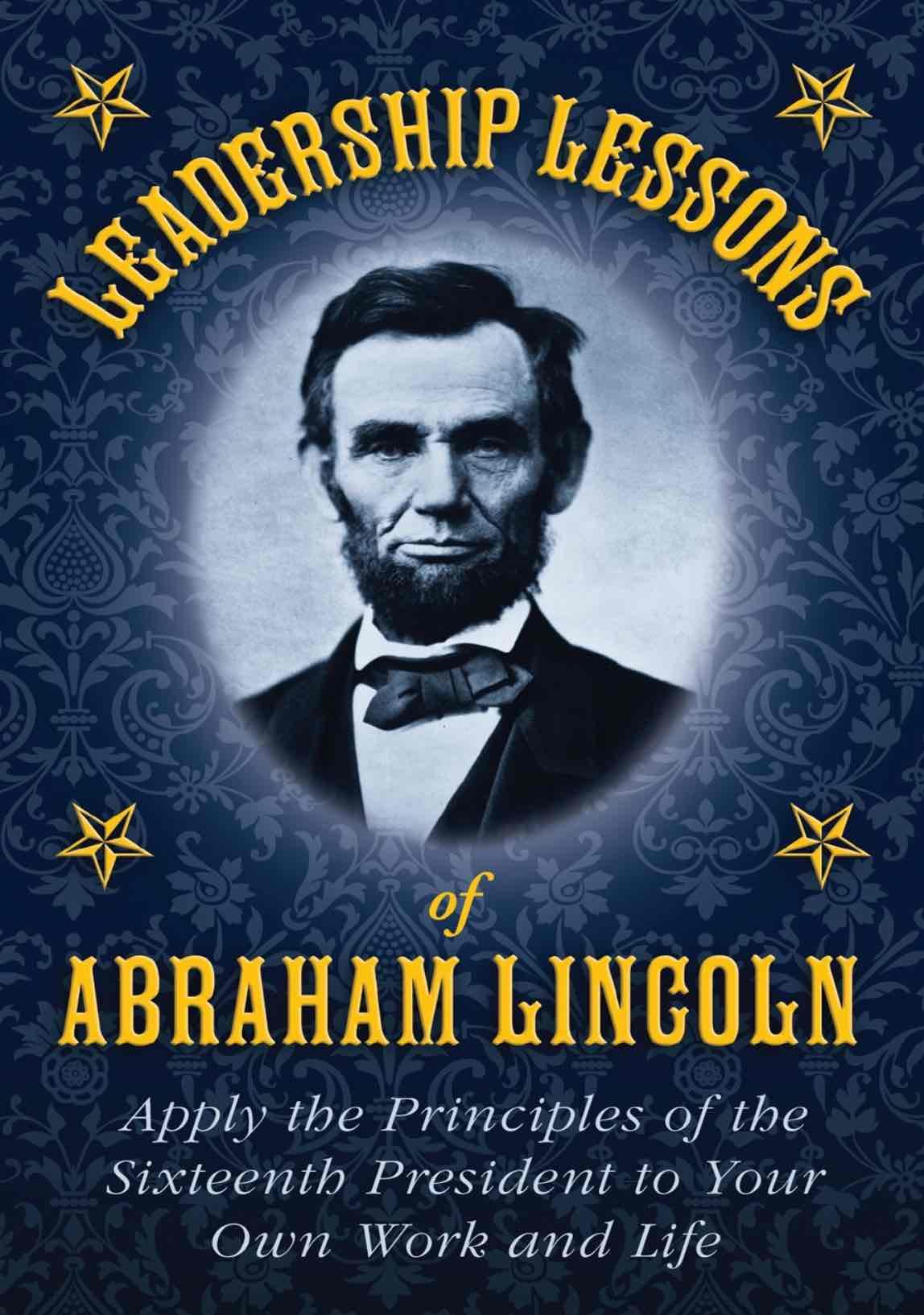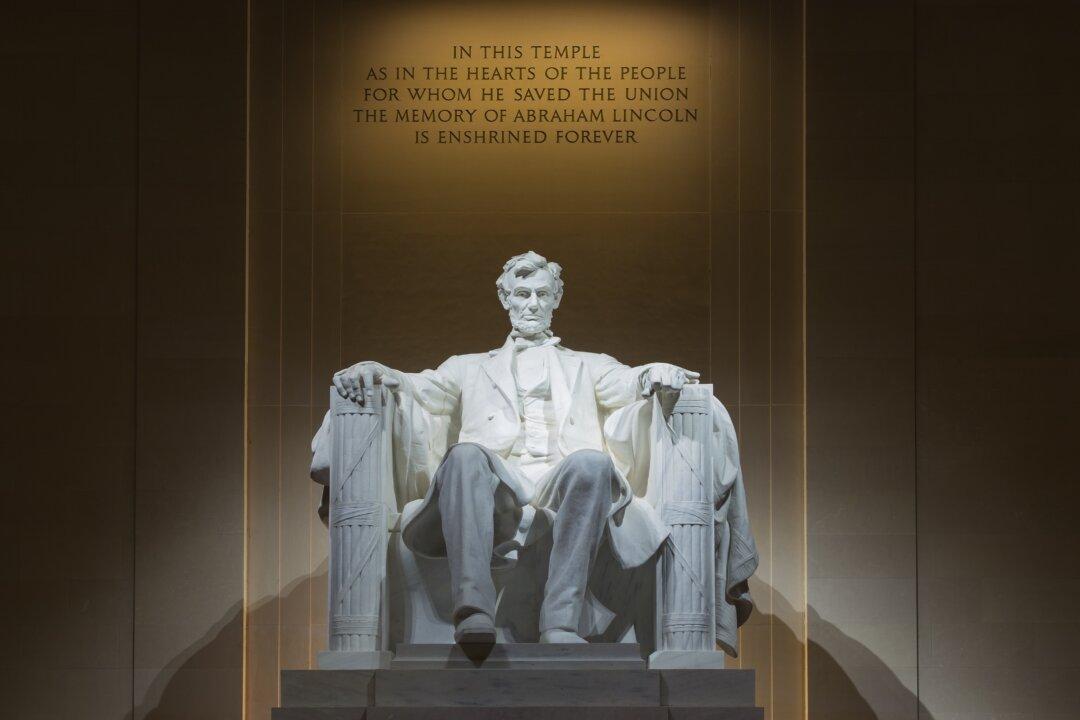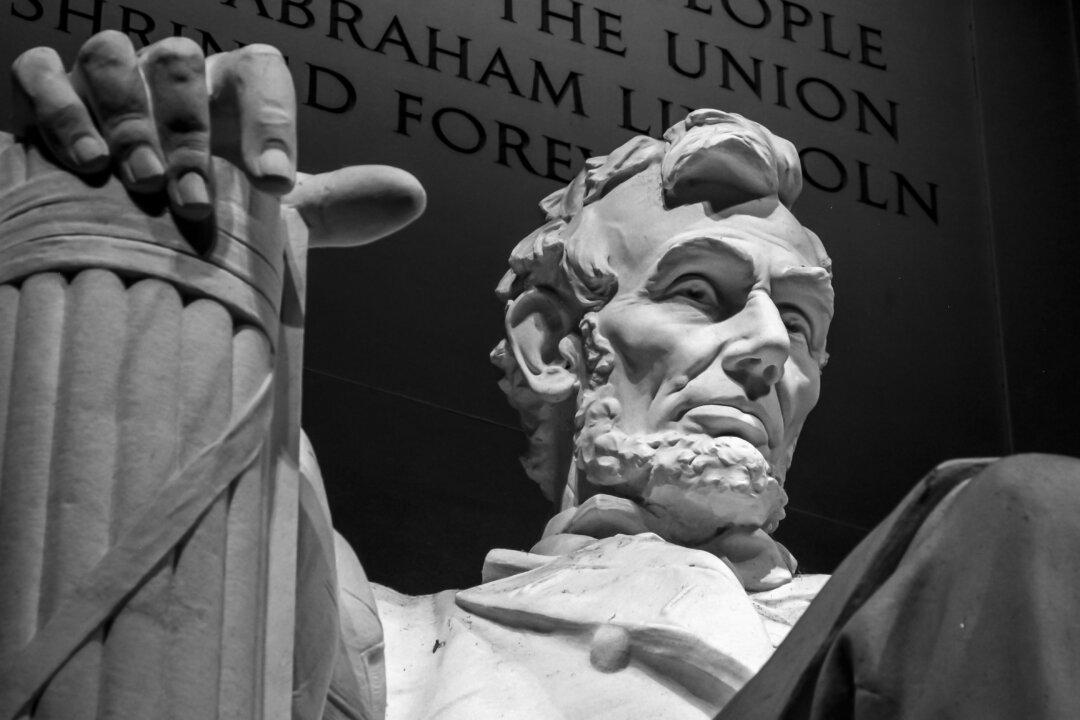There can be no doubt that Lincoln was a great leader, and that his words will continue to inspire generations to come. In this short book we have attempted to mine through the literary treasure trove of Lincoln’s legacy for those few gems we felt best capture Lincoln’s leadership lessons.
Yet, there are some statements—profound, humble, mundane, exceptional and more—that simply cannot be placed under any suitable heading. We hope that perhaps in this smattering of phrases below, readers will forge a unique connection with, and curiosity about, Abraham Lincoln.
Lincoln the Mere Man
If any personal description of me is thought desirable, it may be said I am, in height, six feet four inches, nearly; lean in flesh, weighing on an average one hundred and eighty pounds; dark complexion, with coarse black hair and gray eyes. No other marks or brands recollected.
—Letter to J. W. Fell; December 20, 1859
My dear little Miss, Your very agreeable letter of the 15th is received. I regret the necessity of saying I have no daughter. I have three sons—one seventeen, one nine, and one seven years of age. They, with their mother, constitute my whole family. As to the whiskers, having never worn any, do you not think people would call it a piece of silly affectation if I were to begin it now?
—Letter to Miss Grace Bedell; October 19, 1860
How miserably things seem to be arranged in this world. If we have no friends, we have no pleasure; and if we have them, we are sure to lose them, and be doubly pained by the loss.
—Letter to Josiah Speed; February 25, 1842
Essential Reading
I say there is room enough for us all to be free. —Speech at Cincinnati, Ohio; September 17, 1859
To the best of my judgment I have labored for, and not against the Union.
—Speech at Springfield, Illinois; October 29, 1858
Understanding the spirit of our institutions to aim at the elevation of men, I am opposed to whatever tends to degrade them.
—Letter to Dr. Theodore Canisius; May 17, 1859
If A. can prove, however conclusively, that he may, of right, enslave B. Why may not B. snatch the same argument, and prove equally, that he may enslave A? You say A. is white, and B. is black. It is color, then; the lighter, having the right to enslave the darker? Take care. By this rule, you are to be slave to the first man you meet, with a fairer skin than your own. You do not mean color exactly?—You mean the whites are intellectually the superiors of the blacks, and, therefore have the right to enslave them? Take care again. By this rule, you are to be slave to the first man you meet, with an intellect superior to your own. But, you say, it is a question of interest; and, if you can make it your interest, you have the right to enslave another. Very well. And if he can make it his interest, he has the right to enslave you.
—Fragment; written circa July 1854
Our progress in degeneracy appears to me to be pretty rapid. As a nation, we began by declaring that all men are created equal. We now practically read it, all men are created equal except negroes. When the Know-nothings get control, it will read, all men are created equal except negroes and foreigners and Catholics. When it comes to this, I shall prefer emigrating to some country where they make no pretence of loving liberty—to Russia, for instance, where despotism can be taken pure, and without the base alloy of hypocrisy
—Letter to Joshua F. Speed; August 24, 1855
It is seventy-two years since the first inauguration of a President under our national Constitution. During that period fifteen different and greatly distinguished citizens have, in succession, administered the executive branch of the government. They have conducted it through many perils, and generally with great success. Yet, with all this scope of precedent, I now enter upon the same task for the brief Constitutional term of four years under great and peculiar difficulty. A disruption of the Federal Union, heretofore only menaced, is now formidably attempted. I hold that, in contemplation of universal law and of the Constitution, the Union of these States is perpetual. Perpetuity is implied, if not expressed, in the fundamental law of all national governments. It is safe to assert that no government proper ever had a provision in its organic law for its own termination. Continue to execute all the express provisions of our National Constitution, and the Union will endure forever—it being impossible to destroy it except by some action not provided for in the instrument itself.
—Lincoln’s first Inaugural Address; March 4, 1861
A nation may be said to consist of its territory, its people, and its laws. The territory is the only part which is of certain durability. “One generation passeth away and another generation cometh, but the earth abideth forever.” It is of the first importance to duly consider and estimate this ever- enduring part.
—Message to Congress; December 1, 1862
What is conservatism? Is it not adherence to the old and tried, against the new and untried?
—Address at Cooper Institute; February 27, 1860
I believe the declaration that “all men are created equal” is the great fundamental principle upon which our free institutions rest; that negro slavery is violative of that principle.
—Letter to J. U. Brown; October 18, 1858
As each man has one mouth to be fed, and one pair of hands to furnish food, it was probably intended that that particular pair of hands should feed that particular mouth.
—Address at the Wisconsin State Fair; September 30, 1859
Considering the great degree of modesty which should always attend youth, it is probable I have already been more presuming than becomes me.
—Open letter to the People of Sangamo County; March 9, 1832
Gold is good in its place, but living, brave, patriotic men are better than gold.
—Reply to a spontaneous serenade; November 10, 1864
This is the one hundred and tenth anniversary of the birthday of Washington; we are met to celebrate this day. Washington is the mightiest name of earth, long since mightiest in the cause of civil liberty, still mightiest in moral reformation. On that name no eulogy is expected. It cannot be. To add brightness to the sun or glory to the name of Washington is alike impossible. Let none attempt it. In solemn awe pronounce the name, and in its naked deathless splendor leave it shining on.
—Speech to the Washington Temperance Society; February 22, 1842
The resources, advantages, and powers of the American people are very great, and they have consequently succeeded to equally great responsibilities. It seems to have devolved upon them to test whether a government established on the principles of human freedom can be maintained against an effort to build one upon the exclusive foundation of human bondage.
—Letter to the Working Men of London, England; February 1, 1863
Thanks to all, for the great Republic, for the principle it lives by and keeps alive, for man’s vast future, thanks to all.
—Letter to James C. Conkling; August 26, 1863
(To be continued...)
This excerpt is taken from “Leadership Lessons of Abraham Lincoln: Apply the Principles of the Sixteenth President to Your Own Work and Life“ edited with introductions by Meg Distinti. To read other articles of this book, click here. To buy this book, click here.
The Epoch Times copyright © 2023. The views and opinions expressed are those of the authors. They are meant for general informational purposes only and should not be construed or interpreted as a recommendation or solicitation. The Epoch Times does not provide investment, tax, legal, financial planning, estate planning, or any other personal finance advice. The Epoch Times holds no liability for the accuracy or timeliness of the information provided.





